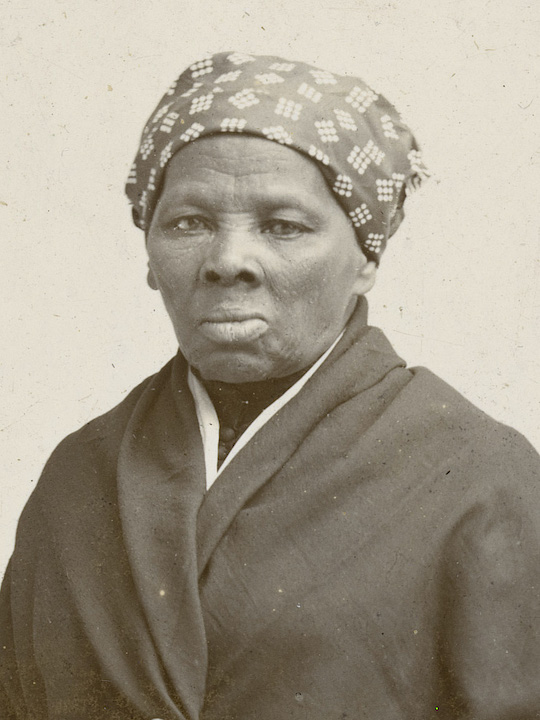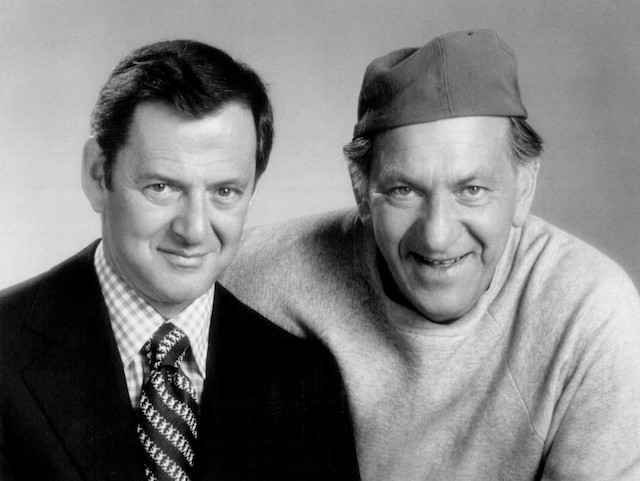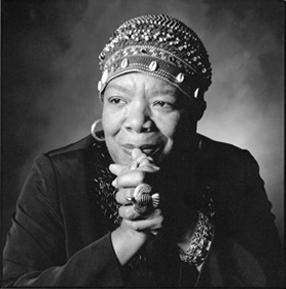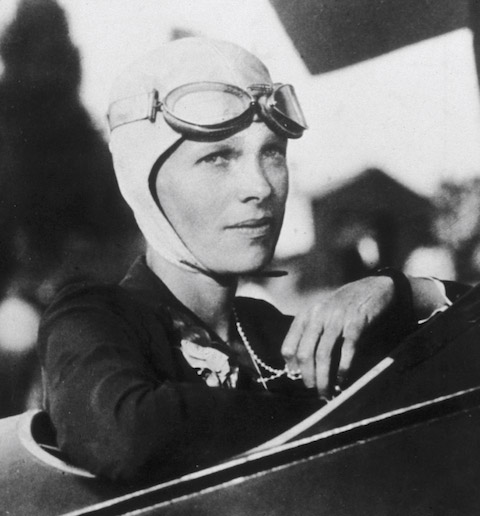What Do You Have In Common With These Famous People?
- By
- Steve Williamson, VP Digital Marketing and Content, eRep, Inc.
- Posted
- Monday, July 3, 2023

At eRep, we have written profiles of several famous people and a few fictional ones, too. The goal is to analyze their personality and describe their likely Core Values Index™ psychometric profile, so that the reader can gain a better understanding of how the CVI works, and to see if they share some similarities to the famous person.
Writing these profiles is a fun process and it's entertaining to see if we share traits of people we admire.
Looking back on the famous people we've profiled, here is a review of each with highlights about what makes each unique.
As you read these descriptions, see how much your personality matches up (or differs) from these famous folks.
Are you like Santa Claus?
He knows when you've been sleeping. He knows when you're awake. He knows if you've been bad or good, so be good for goodness sake!
 No,
he's not the Director of the Central Intelligence Agency (although
he's certainly got some qualifications for the role). He's our favorite
jolly gift-giver, Santa Claus.
No,
he's not the Director of the Central Intelligence Agency (although
he's certainly got some qualifications for the role). He's our favorite
jolly gift-giver, Santa Claus.
We all think we know him, but do we really?
Santa Claus likes milk and cookies and doesn't judge us for our own dietary choices. One of the things we like about Santa, especially as we gain a few pounds during the holidays, is we know he won't be fat shaming any of us, not even from a secret alt account on Twitter.
Coupling a strong sense of justice and immaculate attention to detail with a deep and compassionate commitment to the happiness and social connection of others indicates Santa Claus likely has the well-rounded Core Values Index psychometric profile of a Banker/Innovator/Merchant.
Do you possess inside you the dedicated courage of Harriet Tubman?
"There was one of two things I had a right to," Harriet Tubman explained, "liberty or death; if I could not have one, I would have the other."
 The
story of Harriet Tubman is one of decisive compassion and justice.
She was a courageous and dedicated hero of freedom at a time in American
history when human beings were considered property to be bought and
sold. She focused her indomitable will toward the righteous goal of
raising all of humanity to a state of equality and justice.
The
story of Harriet Tubman is one of decisive compassion and justice.
She was a courageous and dedicated hero of freedom at a time in American
history when human beings were considered property to be bought and
sold. She focused her indomitable will toward the righteous goal of
raising all of humanity to a state of equality and justice.
Tubman was brave as well as tenacious. She helped the Union Army in several important missions during the Civil War as a scout and guide. Later in life, she fought alongside suffragists Susan B. Anthony and Emily Howland, seeking to gain women the right to vote. To her, the connection between personal freedom and the right to vote were interlinked.
We estimate that Harriet Tubman's Core Values Index profile was likely primarily Builder and secondarily Innovator. She never hesitated to act and took bold action as both an individual seeking freedom and as a leader of others. Tubman was innovative and never backed down from a challenge to solve problems that had potentially fatal consequences if she failed. She was also driven by compassion for others, a trait attributed to Innovators more than any other core value energy.
Builder/Innovators excel at getting things done in challenging situations, and do not hesitate to act whether operating alone or in a leadership position. These qualities, and more, describe the likely psychometric profile of one of the bravest and most compassionate individuals in American history.
What about the charisma and problem-solving ability of Ferris Bueller?
"Life moves pretty fast. If you don't stop and look around once in a while, you could miss it."
 We
know and love that famous quote from one of the coolest kids to ever
graduate high school despite 10 unexplained absences. He could get you
out of summer school, show you the best parts of Chicago, sing to you in
a parade, and convince his parents he was a sweet, innocent teenager
hoping to make it into a good college, all in a single day.
We
know and love that famous quote from one of the coolest kids to ever
graduate high school despite 10 unexplained absences. He could get you
out of summer school, show you the best parts of Chicago, sing to you in
a parade, and convince his parents he was a sweet, innocent teenager
hoping to make it into a good college, all in a single day.
His name is Ferris Bueller and he was my hero. Ferris Bueller's Day Off came out the summer between my Junior and Senior years of high school and I wanted to be like him more than anyone else. To me, he was like a teenage James Bond, fearless in the face of danger and always a hit with the ladies. Nothing phased him.
Ferris is fearless. As his friend, Cameron, said, "There's nothing he can't handle." Throughout the entire movie, Ferris never lacks confidence, even when the odds seem insurmountably stacked against him. When Cameron suggested they surrender, Ferris said without hesitation, "When the meek get pinched, the bold survive."
Snap.
There is nothing more representative of a Builder's confidence than that.
In the end, what kind of CVI profile does Ferris Bueller have? He seems to have equal amounts of Builder and Merchant energy, but between the two, Builder is likely his primary score. His Innovator score isn't too far behind, but is definitely in the tertiary position.
Since a CVI profile's scores must total exactly 72, that leaves 10 points for Ferris's Banker energy. He never uses it in the movie, so that would fit into the 12-points-or-less rule: any core value energy score of 12 points or less is rarely accessed.
Ferris Bueller is likely a Builder/Merchant, with a CVI profile of:
22-Builder, 22-Merchant, 18-Innovator, 10-Banker
Maybe he is the walrus. That doesn't seem to hurt him, though. He definitely has a knack for bumming sweet rides off of people.
Dankeschön
How can we forget the deadly compassion (an odd combination!) of John Wick?
He is more than a retired assassin, John Wick is a compassionate loner that only kills those that deserve to die.
 While
mourning the death of his wife, the bad guys stole his car and
killed his dog. This re-awakening of the life Wick hoped to leave behind
highlights his humanity as well as his ruthless and shockingly effective
ability to destroy his enemies.
While
mourning the death of his wife, the bad guys stole his car and
killed his dog. This re-awakening of the life Wick hoped to leave behind
highlights his humanity as well as his ruthless and shockingly effective
ability to destroy his enemies.
Five years before the story begins, John's wife died, motiving him to retire and swear off his life-long vocation as a professional assassin. To assuage his depression, he got a dog and showed remarkable tenderness to the animal despite the fact that he (until recently) killed for a living.
These two plot elements reveal the character's deep humanity and compassion.
As John Wick mows through thug henchmen and rival assassins with shocking efficiency, we see three personality characteristics that reveal his psychometric profile.
In the parlance of the Core Values Index psychometric assessment, John Wick is likely an Innovator/Builder. His Innovator energy is expressed through his intense and genuine compassion for his dead wife and [now dead] dog. The Innovator exhibits the highest level of compassion amongst the four core value energies.
Fortunately, real world Innovator/Builders are not assassins. They are truck drivers and security guards and independent contractors in all kinds of useful and legal fields, wearing white and blue collars and uniforms of all stripes. Give an Innovator/Builder an objective, then stand back and watch them efficiently achieve it.
And then there's the charm and action-oriented nature of James Bond.
 Every
James Bond movie has a scene where he impatiently plays with the
various gadgets and gizmos Q has prepared for him, never bothering to
read a manual or ask detailed questions about how they work. To me, this
shows 007 has a noticeable lack of the Banker's thorough knowledge
energy.
Every
James Bond movie has a scene where he impatiently plays with the
various gadgets and gizmos Q has prepared for him, never bothering to
read a manual or ask detailed questions about how they work. To me, this
shows 007 has a noticeable lack of the Banker's thorough knowledge
energy.
Based on these observations, my estimation is that James Bond is a Merchant/Builder with Innovator coming in third. He is a serious persuader who doesn't hesitate to take bold action.
The ability to interact effectively with others could be classified as a super power in the next Marvel or DC blockbuster.
It wouldn't be as exciting as shooting spider webs out of your hands or lifting cars with one hand, but in the real world few things are as useful as interpersonal success.
Once you fully understand your own CVI profile, you develop an ability to detect the core values of others. Using your understanding of how the different core value energies work and what motivates them, you learn how to adjust your own behavior and communication style to more effectively interact with other people. Bankers learn to summarize their knowledge into a few bullet points when talking with Builders. Innovators learn to take the energetic initiative of Merchants and complete the work with creative solutions.
In contrast to James Bond's Merchant/Builder energy, most of his villainous enemies are likely Builder/Merchants. Can you guess a few reasons why?
Remember Felix and Oscar, the original Odd Couple?
 Felix
and Oscar. These two names pack serious imagery of the difference
between an uptight neat-freak and an easy-going laid-back personality.
We can analyze their personalities today and produce a textbook case
study of what it means to be a Banker or Merchant.
Felix
and Oscar. These two names pack serious imagery of the difference
between an uptight neat-freak and an easy-going laid-back personality.
We can analyze their personalities today and produce a textbook case
study of what it means to be a Banker or Merchant.
Felix wants everything to be just so. Oscar prefers to say, "So, what?"
One is precise and fastidious and the other is easygoing and slovenly. Could these characters be more dissimilar? Probably not. In fact, they were created by playwright Neil Simon to be as contrary as possible, to the point of being caricatures of their opposite stereotypes.
At first glance, it would seem that the overwhelming differences between the two main characters imply a strong competitiveness. They are at cross-purposes and cross-methods in everything they do. On further viewing, however, the audience gets the sense that neither Felix nor Oscar are right or wrong, they are simply trying to live together the best they can under the metaphorical roof of their differing perspectives and priorities.
Perspectives and priorities are the key words here.
Felix exemplifies the precision and perfection that Banker's are known for. He has very specific views about how things are to be done. Going with the flow when things change without warning makes his brain twitch with nervous discomfort. He seeks order and predictability.
Oscar, on the other hand, is a stereotypical Merchant. He is easygoing and takes things as they come. In fact, Oscar would rather things not be orderly and consistent. What's the fun in that?
Estimated CVI Profile, Felix: Banker/Innovator
Estimated CVI Profile, Oscar: Merchant/Builder
Do you have the talent and drive of Rush drummer and lyricist (and multi-published author), Neil Peart?
 Neil
Peart was not only a world-class drummer, he was also an author. He
wrote the lyrics for the vast majority of Rush songs, and also published
several non-fiction novels detailing his travels. Peart was a
long-distance motorcycle rider, often clocking tens of thousands of
miles per year. He rode his BMW GS adventure bike between shows while
the band was on tour.
Neil
Peart was not only a world-class drummer, he was also an author. He
wrote the lyrics for the vast majority of Rush songs, and also published
several non-fiction novels detailing his travels. Peart was a
long-distance motorcycle rider, often clocking tens of thousands of
miles per year. He rode his BMW GS adventure bike between shows while
the band was on tour.
One of the best indicators of Neil's core personality and attitude toward drumming was his nickname: The Professor. Neil studied drumming and the theory behind it. Everything he did was deliberate and had a specific reason. One of his famous quotes was:
"Never leave spontaneity to chance."
Neil Peart was a voracious reader, always seeking knowledge. His mother said that when he was a kid, he took up knitting so that he could understand how it worked.
Peart avoided the limelight, and the open admiration of his fans made him uncomfortable. Despite this, he strove to earn the respect and appreciation of Rush fans in every performance he gave. He just didn't want to hear about it in person. Neil stated in an interview that with each performance, he wanted to give the audience something worth their time and money. He had a notable sense of justice and honor about it, feeling as if his fans deserved his total drive toward perfection. This perfectionism earned the glowing respect of both his bandmates and drummers worldwide.
Although Neil Peart is considered to be one of the greatest drummers to have ever lived, he wasn't known for his wild experimentation or free-form improvisation. He left a little room in his live drum solos to try new things, but whenever you heard one of his famous solos, you always knew who was playing it.
Neil Peart had Core Values Index qualities that Innovators and Bankers would easily recognize. He was a perfectionist who sought answers and solutions, and he was always asking questions and seeking new knowledge. He had a strong sense of justice and duty to his fans, and was honorable and loyal to his close circle of friends. He neither sought fame nor the public admiration of his fans, and in fact he went out of his way to avoid it. Finally, Neil was deliberate and methodical in everything he did, never acting in an impetuous or hasty manner.
Because of these qualities and characteristics, we estimate that Neil Peart was a Banker/Innovator or an Innovator/Banker; his primary and secondary scores are likely very close and are probably in the profound range (at or above 25). His Builder and Merchant scores are low, but between the two, his Merchant score is probably the lowest of all four.
Do you share the love and compassion of Maya Angelou?
 The
list of Maya Angelou's achievements is a long one — but the list of
people she touched is even longer. According to Angelou, the former is
what really matters. Angelou preached that "...people will forget what
you said, people will forget what you did, but people will never forget
how you made them feel." Among many other things, Angelou was a
celebrated poet, memoirist, actress, and educator. Perhaps most
importantly, she was a civil rights activist who was and still is
considered to be one of the foremost voices on the African-American
experience.
The
list of Maya Angelou's achievements is a long one — but the list of
people she touched is even longer. According to Angelou, the former is
what really matters. Angelou preached that "...people will forget what
you said, people will forget what you did, but people will never forget
how you made them feel." Among many other things, Angelou was a
celebrated poet, memoirist, actress, and educator. Perhaps most
importantly, she was a civil rights activist who was and still is
considered to be one of the foremost voices on the African-American
experience.
Angelou's ultimate Merchant-ness is evident in her belief in powerful love and in hope.
Maya Angelou overcame many obstacles and achieved much in her life. Varied as they were, her accomplishments seemed to have the same effect on her audience. Whether it was through the book, screen, or stage, Angelou was consistently able to make her audience feel. It's clear that she was exceptionally in tune with the emotions of others, as well as her own. This happens to be a trademark trait of the Merchant.
A Merchant's core value is love, and above all they value relationships and connections with others. Merchants such as Angelou tend to be the leaders and icons in culture and the arts. They are uniquely able to inspire hope and courage in others, and they see endless opportunities and possibilities.
Angelou's thoughts on love were that of a textbook Merchant. She believed that "love recognizes no barriers. It jumps hurdles, leaps fences, penetrates walls to arrive at its destination full of hope." Love and hope: two things Merchants endlessly strive to find in themselves and to make others feel.
Her self-stated mission in life was to "not merely survive, but to thrive; and to do so with some passion, some compassion, some humor, and some style." She achieved that goal and then some — for people have not forgotten what she said, what she did, or how she made them feel.
Then there is the daring and adventurousness of Amelia Earhart.
Amelia Earhart was not one to hold back.
 She
claimed the most effective way to do something was simply "to do
it." She referred to fears as "paper tigers," and set out to prove that
men and women were equal in "jobs requiring intelligence, coordination,
speed, coolness, and willpower." She shattered flight records, and with
it, the glass ceiling that kept women from aviation. In the process, she
became the legend—and mystery—that she is today.
She
claimed the most effective way to do something was simply "to do
it." She referred to fears as "paper tigers," and set out to prove that
men and women were equal in "jobs requiring intelligence, coordination,
speed, coolness, and willpower." She shattered flight records, and with
it, the glass ceiling that kept women from aviation. In the process, she
became the legend—and mystery—that she is today.
When we study Earhart's qualities today, we see the qualities of the results-oriented Builder. Builders have the unique ability to turn dreams into realities by relying on their own personal energy. They tend to lead by example and are often willing to go all in to reach their goals. Builders have a strong work ethic with a strong level of internal motivation, and can make decisions on their feet by relying on their intuition. In a letter to her husband about flying despite the danger of it, Earhart wrote that she was "quite aware of the hazards," but that she wanted to do it simply because she wanted to. This internal motivation is a trademark of Builders, who feel that the means of accomplishing a goal is unimportant compared to the goal itself.
As she described it, Earhart's ultimate goal was "to produce practical results for the future of commercial flying and for the women who may want to fly tomorrow's planes." She wanted practical results—and was willing to put her life on the line to produce them. Such clear-cut will and determination to bring equality to aviation, no matter the cost, can only come from a Builder.
Core Values Index™ and CVI™ are trademarks of Taylor Protocols, Inc.Go to eRep.com/core-values-index/ to learn more about the CVI or to take the Core Values Index assessment.

Steve Williamson
Innovator/Banker - VP Digital Marketing and Content, eRep, Inc.
Steve has a career in project management, software development and technical team leadership spanning three decades. He is the author of a series of fantasy novels called The Taesian Chronicles (ruckerworks.com), and when he isn't writing, he enjoys cycling, old-school table-top role-playing games, and buzzing around the virtual skies in his home-built flight simulator.
View additional articles by this contributor
Share This Article
Essentials
Additional Reading
Stay Updated
Employer Account Sign-up
Sign up for an employer account and get these features and functions right away:
- Unlimited Job Listings on eRep.com
- Applicant Search
- Applicant Tracking System (ATS)
- Unlimited Happiness Index employee surveys
- 3 full/comprehensive CVIs™
- No credit card required — no long-term commitment — cancel at any time
Write for eRep
Are you interested in writing for eRep? Read our submission guidelines.
